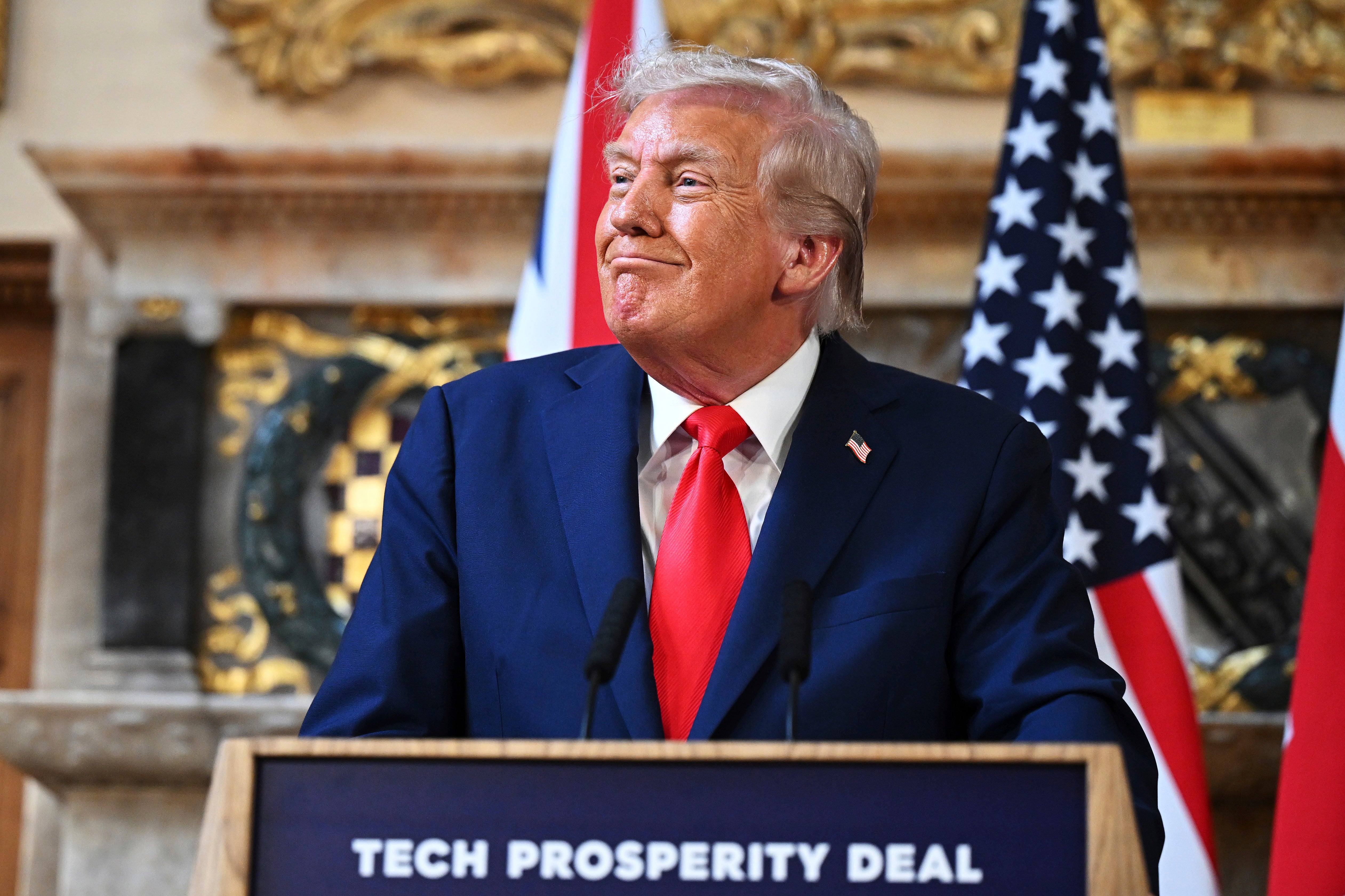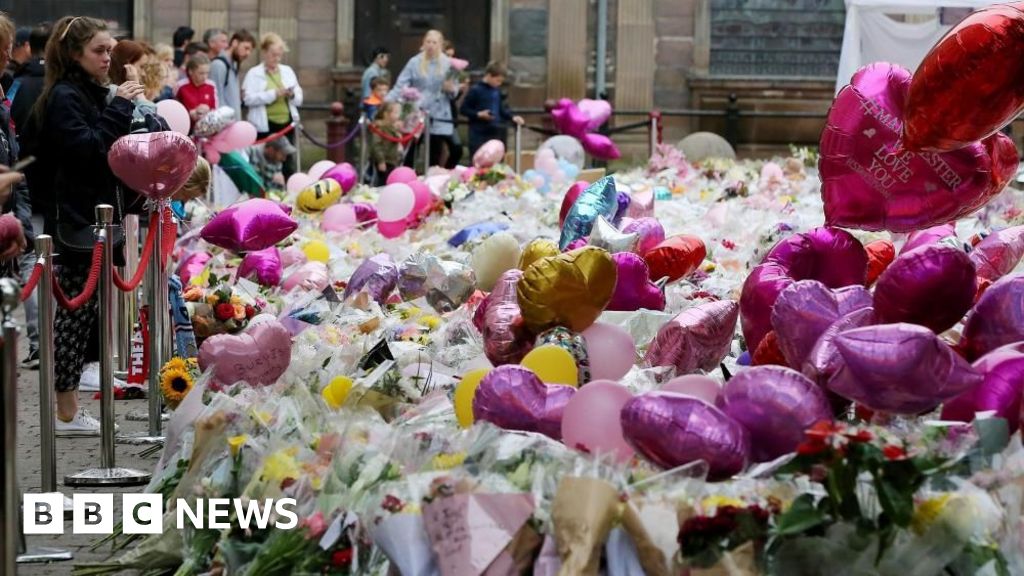As a last gesture of military solidarity during the Trump state visit, the Red Devils, the British army’s world-class parachute display team, put on a show. They descended on Chequers, as if to capture it, symbolically carrying both a union flag and the stars and stripes as the president, the first lady and the Starmers observed the operation from the doorstep of the enchanting Tudor mansion.
Then, rather less welcome, the diabolical special forces of the British and American media rushed into the press room, ready for their own assault on the two leaders. Surrounded by chandeliers, oil paintings and some exceptional wood panelling, it was an incongruous battlefield.
There they waited, and waited, and waited, digging in, during a phoney war phase. Upstairs, Keir Starmer and Donald Trump were regrouping, organising their own tank traps, preparing defensive lines along the most vulnerable sections of their common front: Mandelson, Epstein, green energy, Gaza, immigration, free speech, and so on.
It was time well spent by the president and the prime minister – the best part of an hour in one-on-one conversations with no one else present. They could afford to slow things down, and they did. There was an obvious agreement that, whatever their differences, neither would dump on the other just to give the hacks a story. Both men, after all, have much shared experience in facing a hostile press and, both facing their own domestic challenges, much cause to stick together.
Perhaps their own special, if odd, personal relationship had been galvanised. There were constant references during the state visit to the British and Americans having fought countless wars together, a unique force for freedom. At any rate, the Trump-Starmer Joint Defence Force put up a fight and, frankly, won the day. The brothers-in-arms kept saying how much they liked and respected one another. By the end of this state visit, few, even in the cynical core of political correspondents, disbelieved it.

The press tried everything to drive a wedge into the weaker points in the Trump-Starmer front line. Sometimes it was a close-run thing. On the issue of recognising Palestine, one American reporter, with a commendable lack of deference, challenged Starmer as to why he was waiting (like a coward, was the unspoken supposition) for Trump to go home before making the diplomatic move. That looked like a hefty missile, but it pinged off Starmer harmlessly as he pointed out that he’d already announced the policy last July. On the counterattack, the prime minister added that he wanted to make it absolutely clear that Hamas was a terrorist organisation that can play no role in the governance of a Palestinian state. For that valiant display, Private Starmer received a pat on the back from his buddy in the foxhole, GI Don.
Sanctions on Russia? There, Starmer selflessly sacrificed his own government’s policy on the altar of acknowledging that Trump had a point about the Europeans buying too much Russian oil and gas while demanding more sanctions from the US. “There’s no one silver bullet,” said Starmer of routing Russia from Ukraine, sticking with the theme of the hour.
In return, Trump sounded more disappointed about Putin and positive about crippling Moscow’s war machine – hinting that he’d happily do what was needed to get the oil price down if the Europeans did their bit too.
Maybe Trump knew that Britain stands little chance of meeting its target of spending 5 per cent of its stagnant national income on defence, but he chose not to say as much. For his part, Starmer was happy to back his comrade up on the sacking of US talk show host Jimmy Kimmel. Privately, Starmer probably thinks it a disgraceful attack on free speech, but he confined himself to saying it was not a matter for him and, rightly, expressing shock at the murder of Charlie Kirk.
Otherwise, Trump, as usual, threw around sufficient irrelevant flak about Biden, mental institutions in Congo, and settling “the war between Azerbaijan and Albania” to confuse and distract the media elite. Trump couldn’t help himself from suggesting that the British should “call in the military” to deal with the small boats crisis, but it was a minor breach in their unity. The same goes for Trump telling us that he thinks wind power “is a disaster”. Old news.
In the last moments of the battle for truth, the media deployed their secret weapon. The stealth bomber known as “Beth Rigby” dived in from the Sky and released the “elephant-in-the-room” ballistic missile Peter Mandelson, armed with a nuclear warhead called Jeffrey Epstein. It was a brave attempt, worthy of a VC. But this had been spotted on the radar, let’s face it, about a week ago, and was easily taken down by Trump’s Iron Dome – “I don’t know him, actually”. The fragments of what not so long ago seemed a weapon of mass destruction were easily swept up by Starmer – “some information came to light and I made a decision about it”. And with that damp squib, the battle was over, the prime minister and the president secured a successful summit. Inevitable, really, as they both need a win. Bigly.




